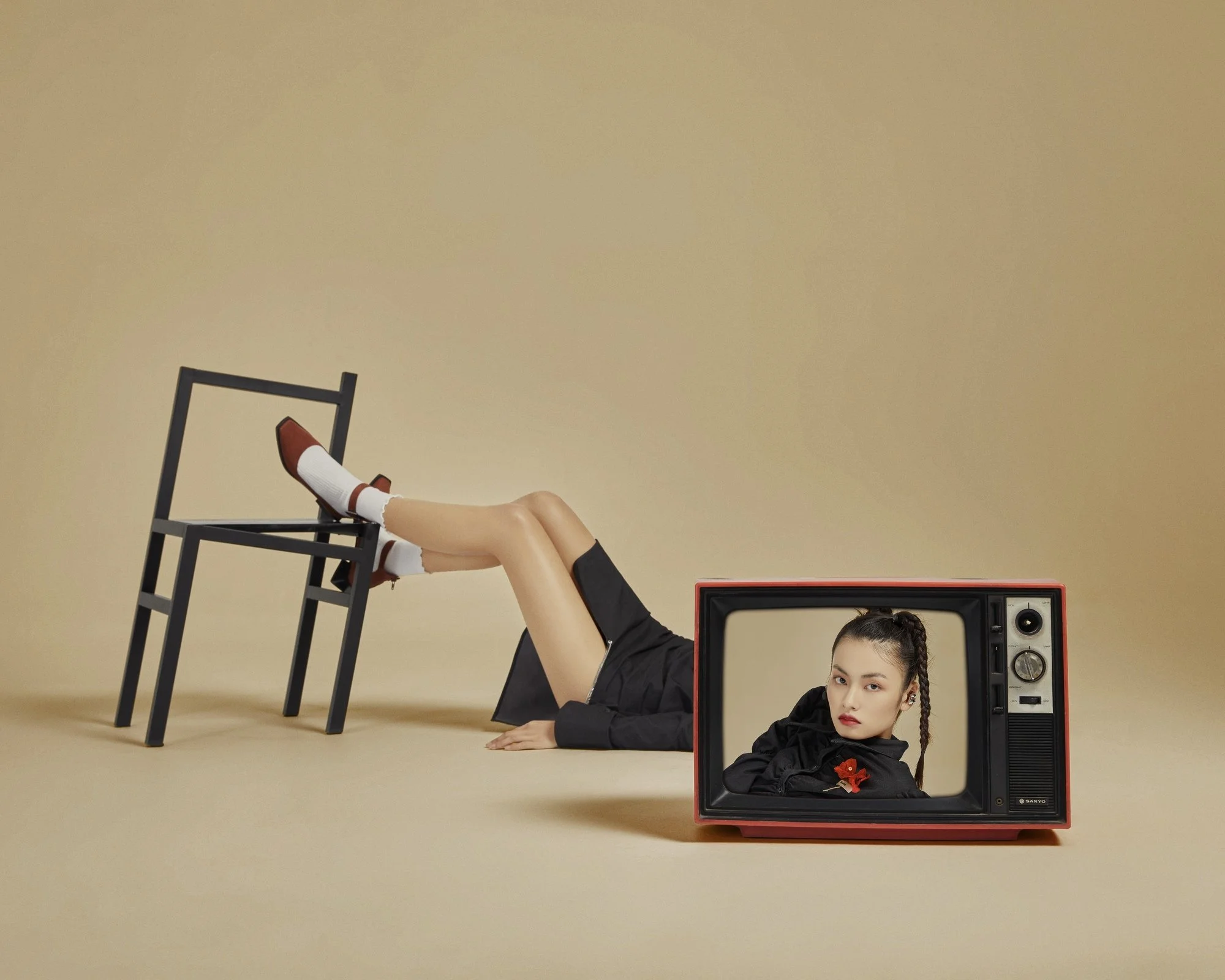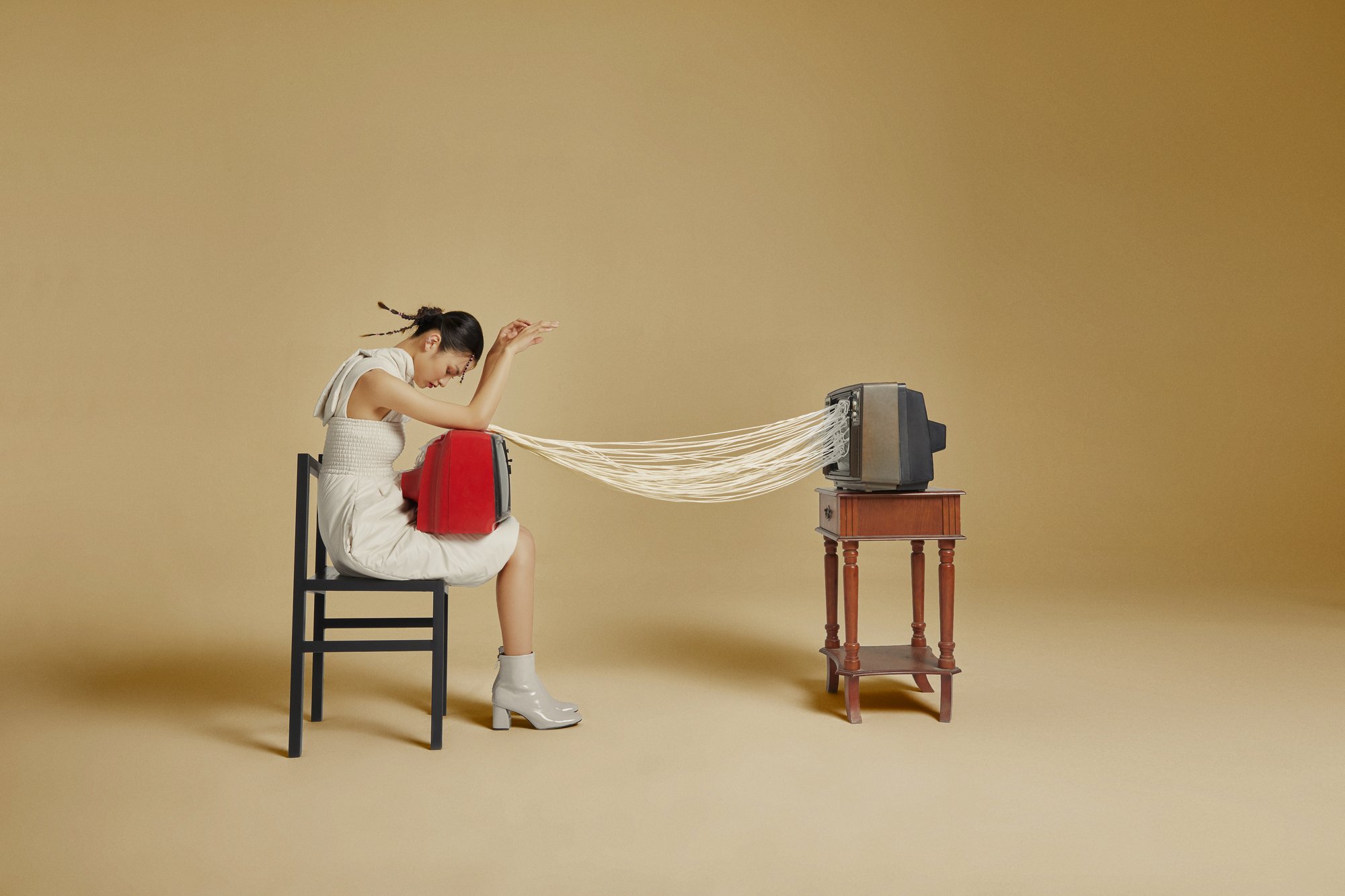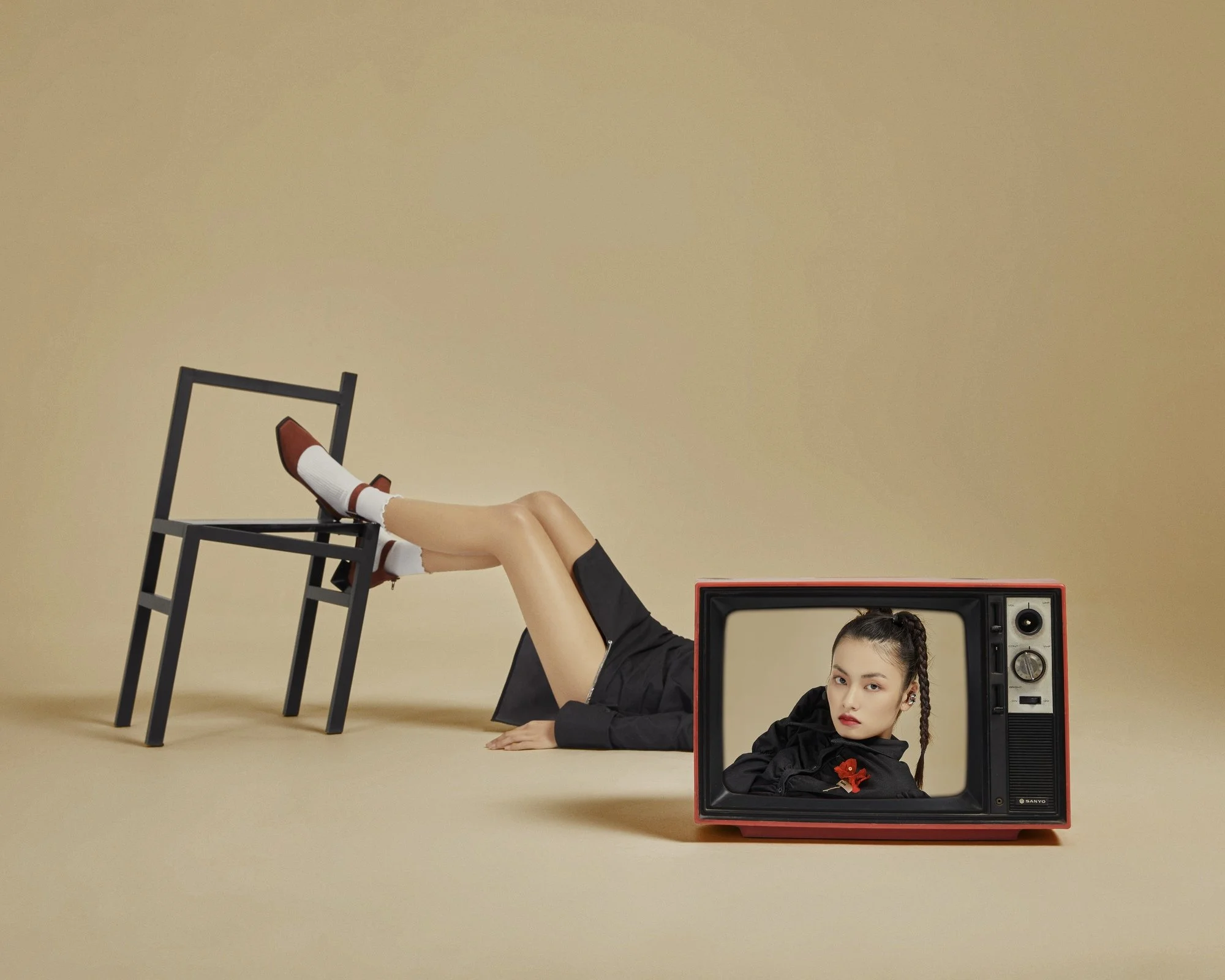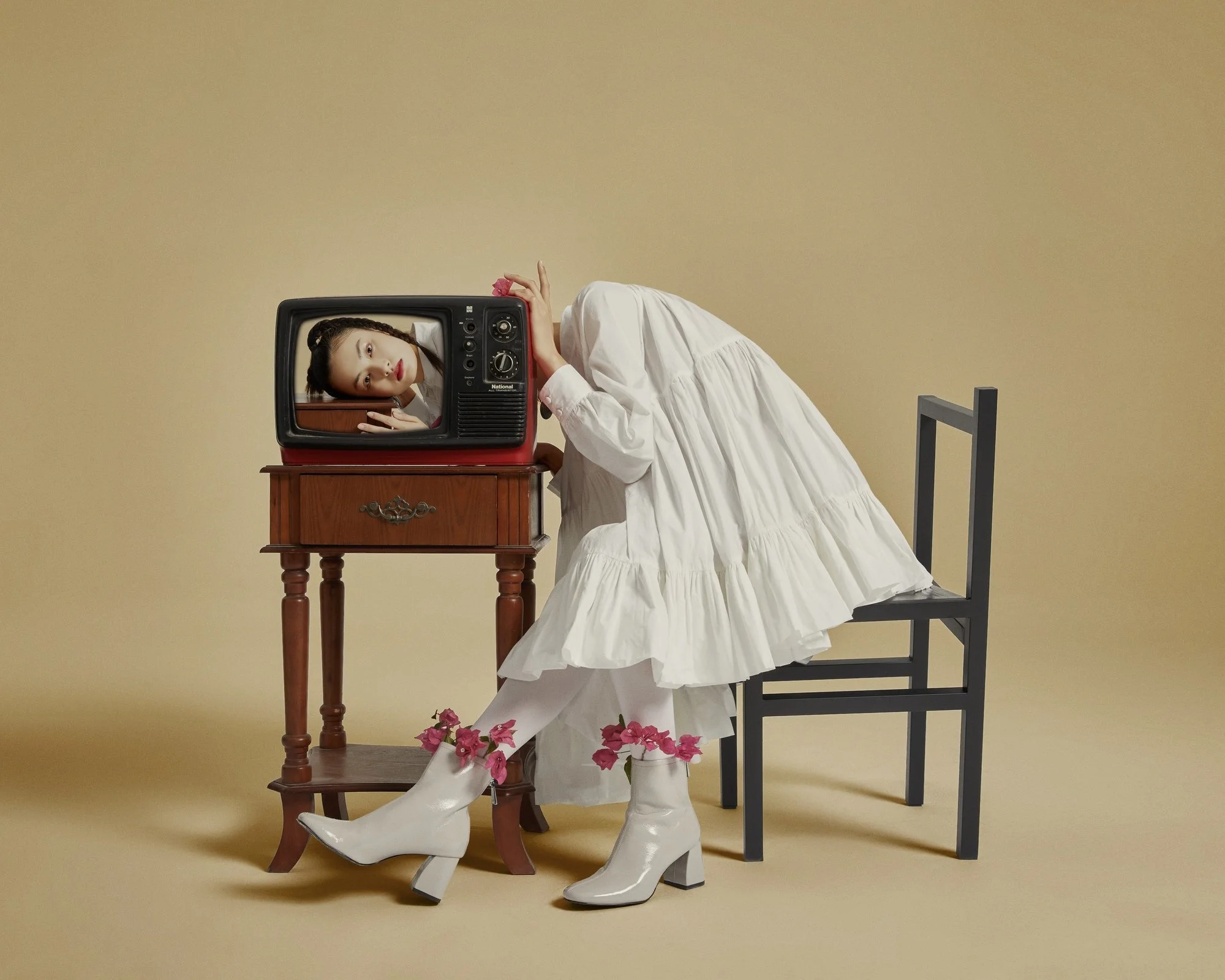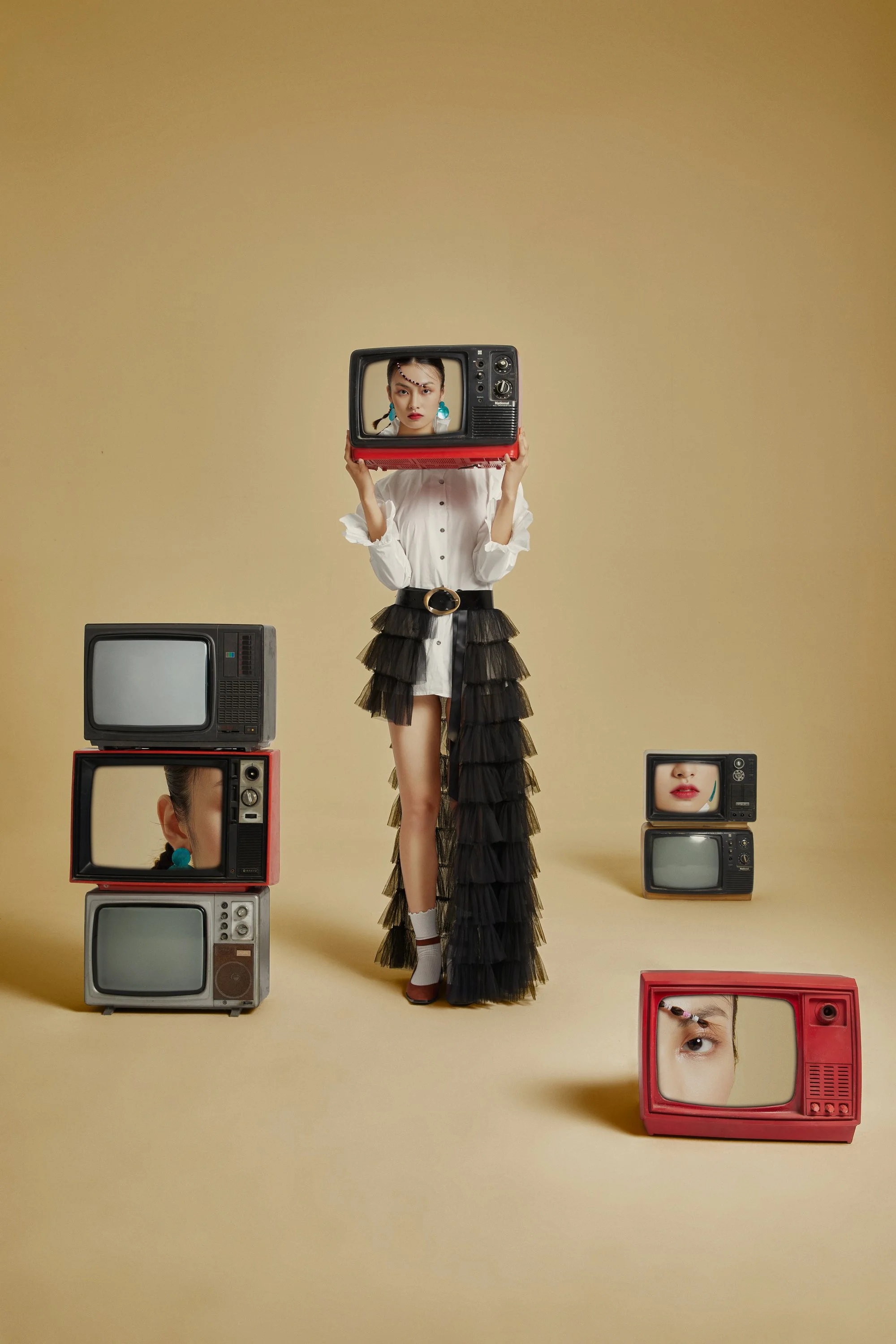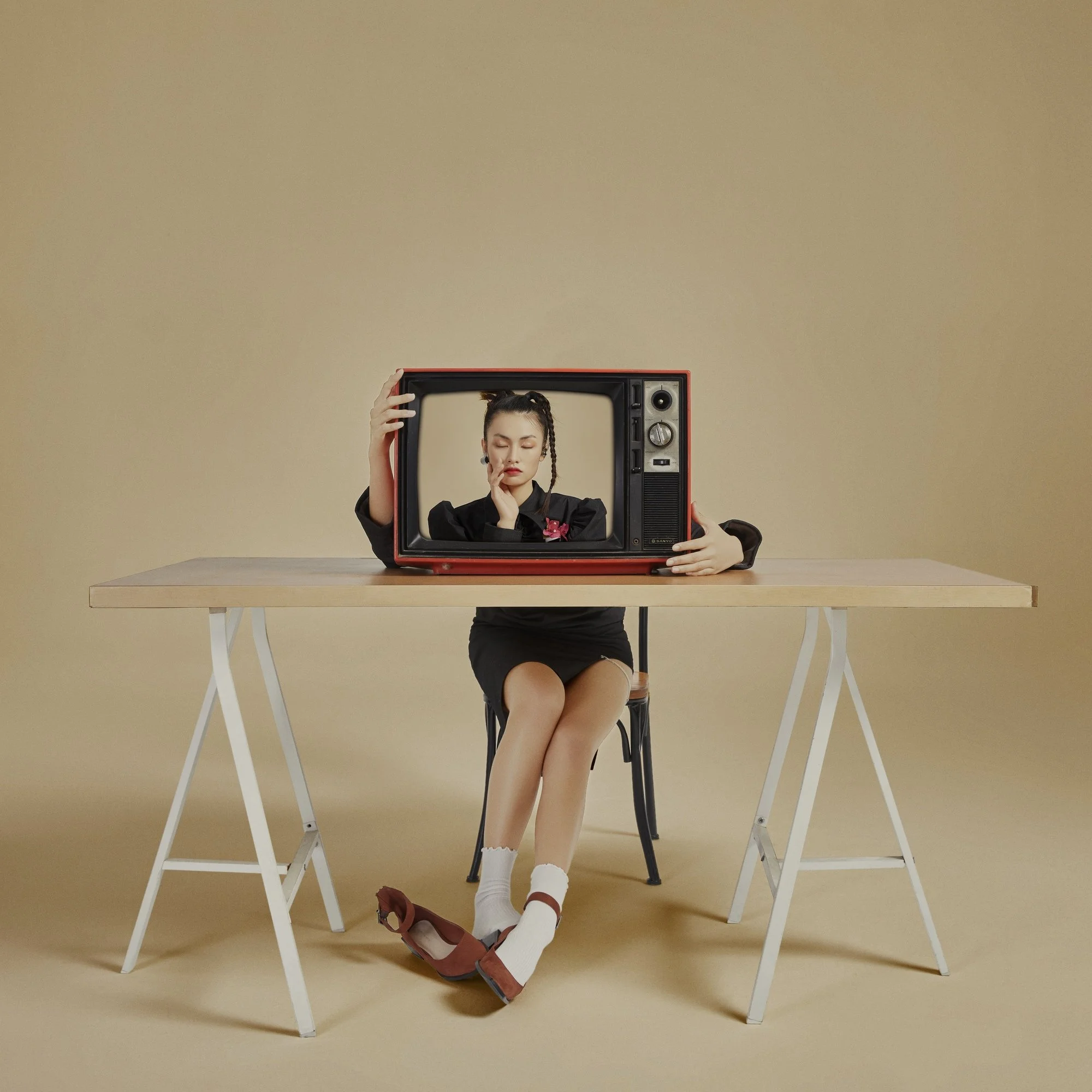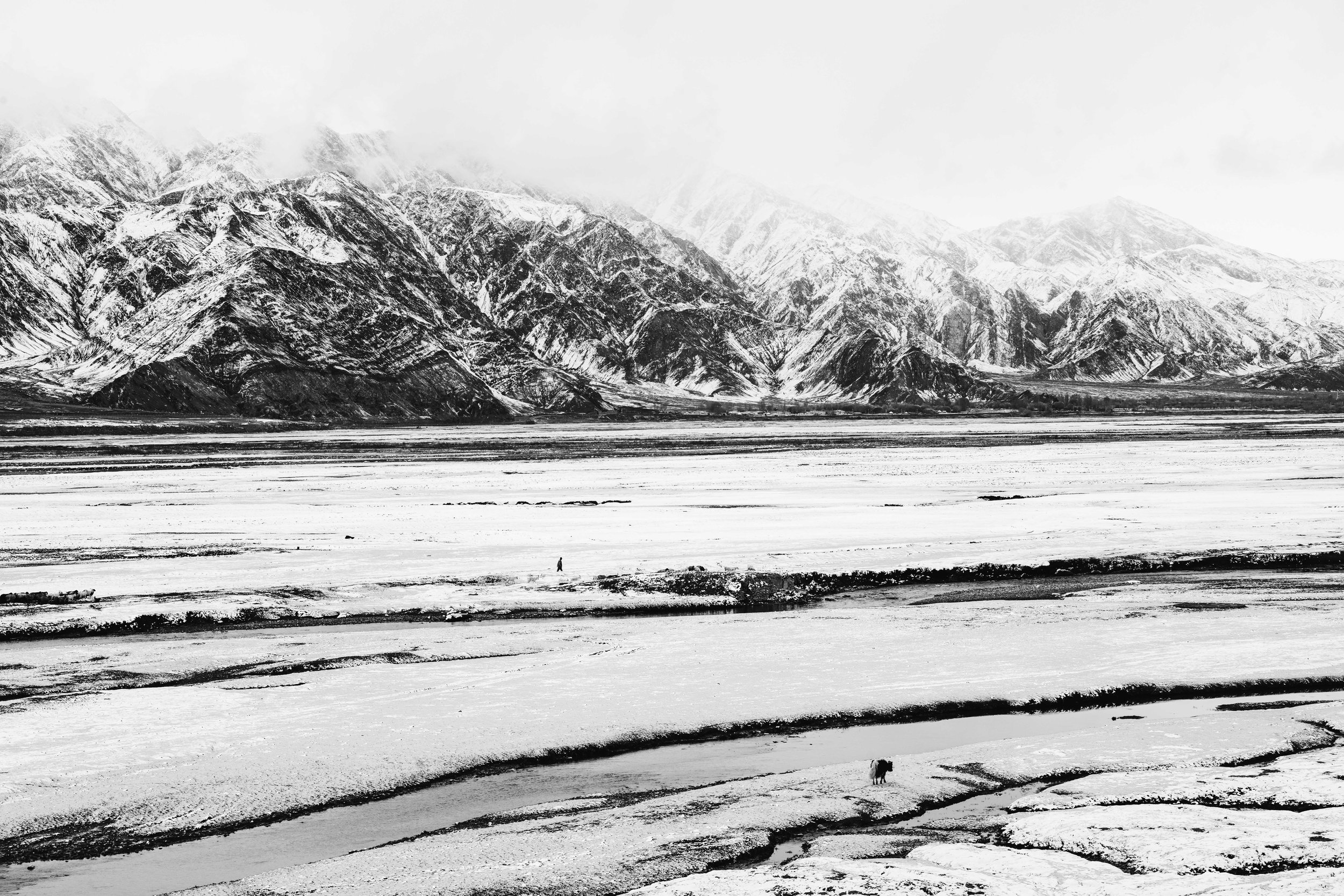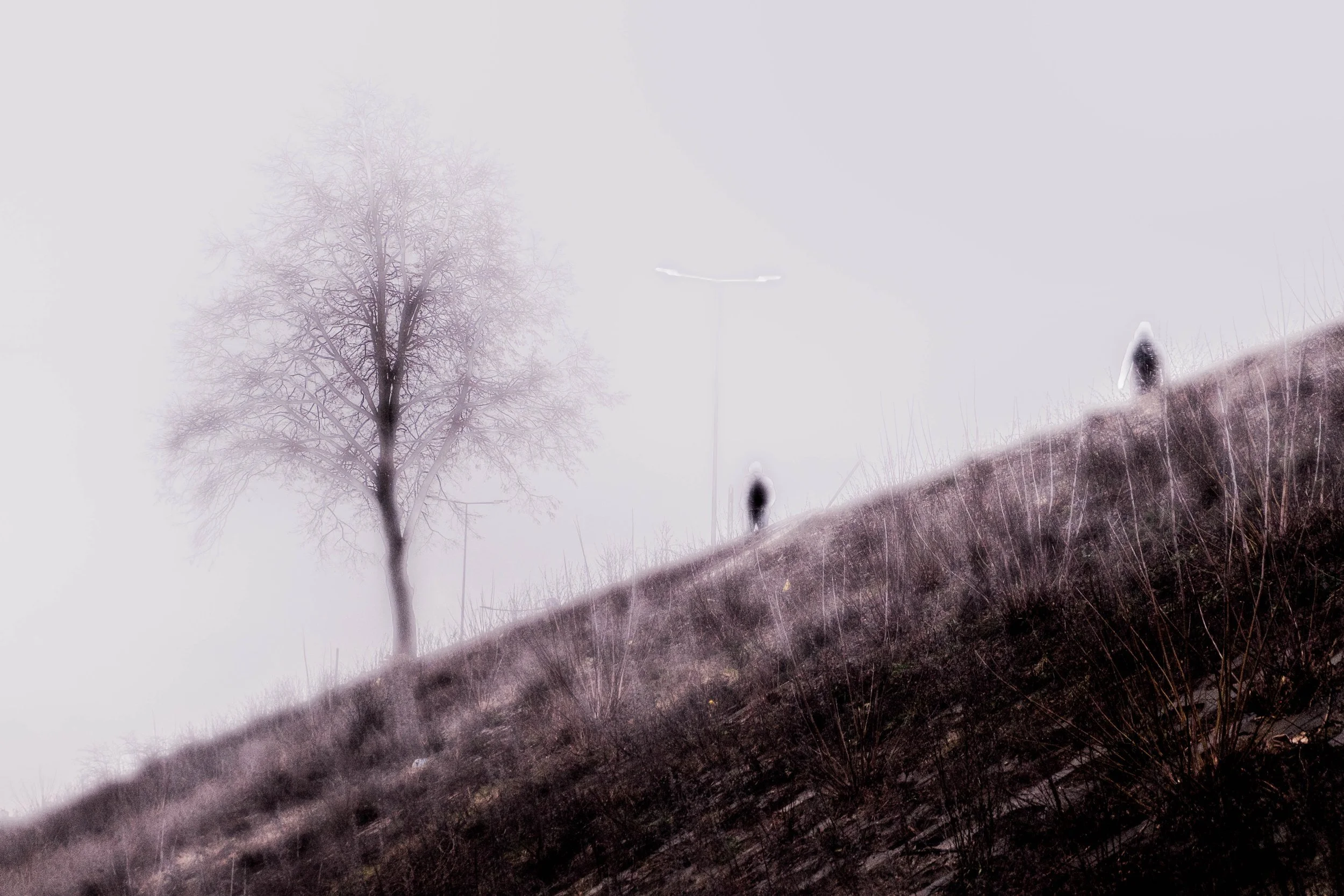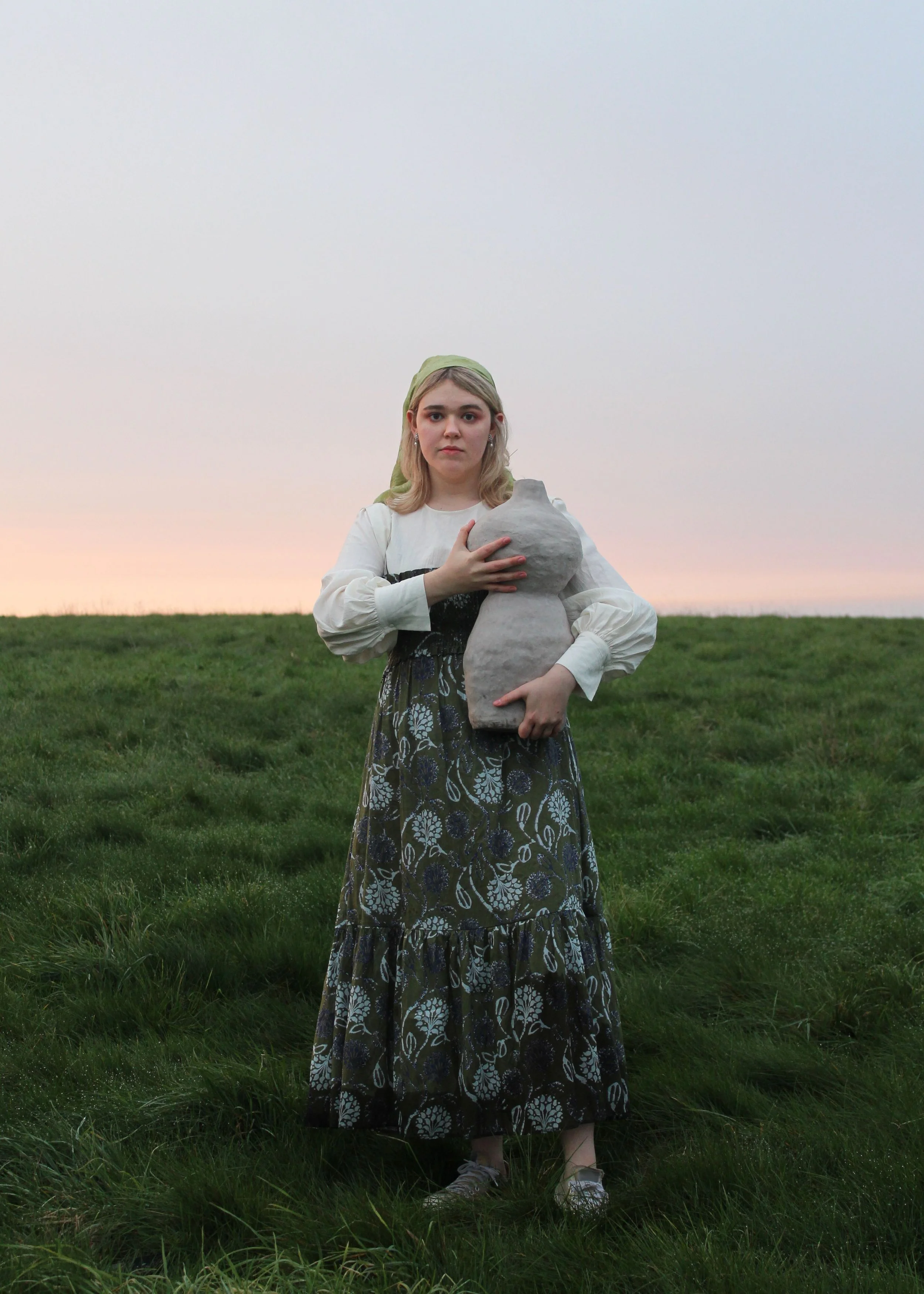10 Questions with Hui Long
Hui Long is a photographer and creative director who brings a unique perspective to the art world. She graduated from the Goldsmiths University of London and currently resides in London. Her work focuses on themes exploring femininity and self-discovery, using her own personal experiences and memories as a source of inspiration.
With a keen eye for detail and a high level of intuition, Hui Long uses her lens to extract the most poignant and meaningful elements from her complex and fragmented memories, presenting them to the viewer in a way that invites them to see themselves in her work. Her use of imagery is always considered, allowing only enough revelation to evoke mystery and intrigue while still leaving enough imagination to encourage the viewer to make their own personal interpretations.
Hui Long uses a keen eye and a thoughtful, restrained approach to her subjects to create haunting and beautiful photographs. Through her art, she invites viewers to delve into the complexity of the human experience and to consider how our past experiences shape and define us.
Hui Long - Portrait
Real and Unreal | Project Description
This research project delves into the complex landscape of Chinese film and television, examining recent trends in the emergence of female-centric themes in these media. Through surveys and in-depth interviews with audiences and scriptwriters, the researchers aimed to understand the motivations behind this trend and its impact on society in many ways.
The findings suggest that the increase in female representation in Chinese film and television represents a positive step towards recognizing and valuing the presence and economic power of women. However, the study also highlights the risk of viewers becoming obsessed with stereotypical images of women presented by the media without realizing the ways in which the media influences their perceptions and beliefs.
The project provides a thought-provoking examination of the role of the media in shaping cultural norms and values and highlights the need to raise awareness and critically engage with the content we consume. Through this study, the authors offer an insightful critique of the current state of film and television in China and invite us to consider how these media can be used to challenge and change social norms and expectations.
Real and Unreal © Hui Long
INTERVIEW
First, tell us a little about your background and studies. How did you start making art? And what inspired you to pursue a career in photography?
I graduated from Goldsmiths College London, and I am currently working in London. My work is based on "myself". I switched from business to photography, and the change was only due to my persistence. I was forced to choose business at university due to my family's obstacles. Still, I didn't give up self-studying photography during my undergraduate studies. At the end of my degree, my family saw my persistence and love for it and started to support me in studying photography. It was all an interest that sustained me.
What is your aim as an artist?
Always keep the energy and enjoy creating, because it's a hard thing to keep up. I hope my work can influence society or some people, that's enough. It's another way to give back to society and create value for it.
Real and Unreal © Hui Long
Real and Unreal © Hui Long
And how has your approach to art and photography evolved over the years?
It's always been the purest form of love, but I've learned to look at the power of money, a proper understanding of the importance of money. Because I came from a business background, not a full photography background, I realized earlier the importance of money for creativity for art and didn't think it was an insult to talk about art in terms of money.
You primarily work on photography projects that revolve around femininity and self-discovery. How do you maintain a cohesive style? Are there any recurring elements you apply to your projects?
This process took me a lot of time to explore. At first, I just liked photography but didn't think about what direction I wanted to go afterwards. After taking a lot of photographs, I started to reflect and take stock of my work and found that it always had more or less a shadow of myself in it. At the same time, women's consciousness was starting to rise in China. I read a lot of women-related books, watched films, and visited exhibitions during that time. It was during that time that many unanswered questions from my upbringing were gradually unlocked, and I felt a sense of enlightenment. At that time, I started to produce work that combined myself and my identity as a woman. There doesn't seem to be a recurring element in my work, but the underlying logic of each project revolves around "myself," which is probably something in common.
Real and Unreal © Hui Long
You mention deriving inspiration from your personal experiences and memories in your statement. How do you use those in your work? How do you translate them into art pieces?
When I start a new project, I extract the most memorable and representative part of my memory or an object that fits best. If I extract an object, then I think about how that object can be transformed, adapted, and turned into an installation that can be incorporated into a photograph. Transforming objects is often the hardest part for me. I usually go to a lot of exhibitions, read books, and see other installations by artists. I always get some inspiration, and it helps me to sort out my logic better.
Real and Unreal © Hui Long
Do you have any artist or photographer whose work has particularly influenced you?
Cindy Sherman, in the early days of feminist-related work, was the one I read the most from. Her boldness and quirkiness appealed to me, and I am easily drawn to quirky novelties, ditto the work of Tim Walker.
Let's talk about the public. What do you want people to read in your works?
I don't really know what I want them to read in my work. I just want the viewer to be healed and empowered when they see my work and think of their own unpleasant past.
Is there any other medium or theme you would like to tackle in the future?
I am teaching myself modeling and 3D, and in the future, I like to make some installations using modeling and 3D in my shoots. There are so many ideas in my head waiting to be realized.
Real and Unreal © Hui Long
You are currently based in London, where you attended Goldsmiths University. How do you find the city art-wise? Is it a stimulating place to create? And what about its art community and market?
London is a great place to create. It gives me endless possibilities. I have been to many countries and cities, and even though many people say London is not a good place to live and the weather is too bad, it is still my favorite city. As well as the freedom of artists to create and the relatively high level of acceptance from the viewer, I personally think the art market in London is very competitive. There are so many great artists here, and there is a constant flow of new artists that it can be difficult to get a place in London.
Finally, do you have any upcoming exhibitions or collaborations? Any new project you want to share with us?
There will be a virtual solo show in Tokyo, Japan, around the beginning of June and a physical show in 2024, but nothing is confirmed yet.
Recently I've been working on a project about intimacy, which was inspired by my ex-boyfriend and me. It's also a project that revolves around "me" and myself. Because even though he has become a part of my past, he is part of me, the habits he left behind, and the influence he has had on me. I will continue to work on this project in a surreal way.

